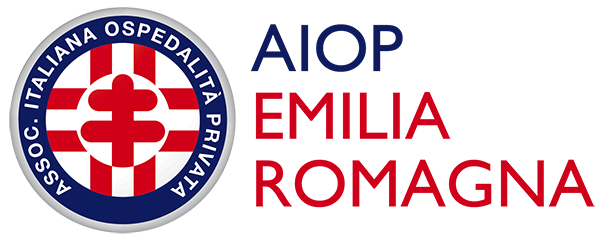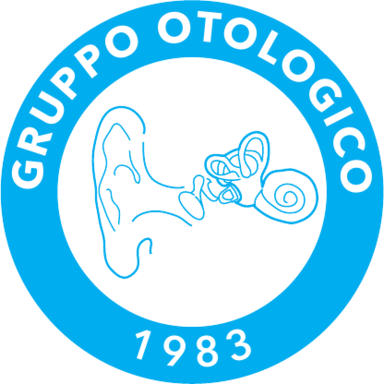Hands On Courses 2026
The Gruppo Otologico organizes, for the year 2026, the following courses of Middle Ear Surgery and Lateral Skull Base Surgery..
-
Skull Base Surgery Course: 23 – 27 March 2026
- Middle Ear Surgery Course: 23 – 27 June 2026
-
Skull Base Surgery Course: 05 – 09 October 2026
-
Middle Ear Surgery Course: 23 – 27 November 2026
The courses will be taught in English.
Download the registration form here.
PUBLICATIONS AND PAPERS
- The Otologic Approach in the Management of posterior petrous surface meningiomas
- Management of complex TJP 2011
- Management of vagal paragangliomas
- Lateral skull base parafaringeal benign
- The Effects of Tympanomastoid Paragangliomas
- A developmental perspective on paragangliar tumorigenesis
- Absence of the controlateral jugular carotid artery
- Are the Current Treatment Strategies for Facial Nerve Scwannoma Appropriate Also for Complex Cases
- Are the Current treatment strategies
- Audiological evaluation of vestibular schwannoma patients with normal hearing (2)
- Auditory Brainstem Implants in NF2 Patients
- Bone anchored lavoro
- Book Review Surgery for Cochlear and Other Auditory Implants
- Book reviews Microsurgery of Skull Base Paragangliomas
- Carotid Body and vagal paragangliomas +Tympanojugular Paragangliomas surgical management
- Clinical and Surgical Pathology of the Petrous Apex
- History of Auditory implantation v4
- Surgical Management of Class C and D Tympanojugular Paragangliomas
- Management of Internal Carotid Artery in Skull Base Paraganglioma Surgery
- Cholesteatoma of the External Auditory Canal
- Chondroblastoma of the temporal bone
- CHONDROSARCOMAS jugular foramen
- CI in irradiated paraganglioma
- Closed Versus Open Technique in the Management
- Cochlear Implantation in Cochlear Ossification
- Combined Endovascular-Surgical Management of the Internal Carotid Artery in Ctp
- Comparison of Lower Cranial Nerve Function Between Tympanojugular Paraganglioma Class C1-C2 With and Without Intracranial Extension- A Four-Decade Experience
- Congenital mastoid Cholesteatoma
- Cerebrospinal Fluid Leak Prevention After Translabyrinthine Removal of Vestibular Schwannoma
- Current trends in the management of the complication of chronic otitis media with cholesteatoma
- Cystic Vestibular Schwannoma: Classification, Management, and Facial Nerve Outcomes
- Decision making in the wait and scan approach for vestibular schwannoma
- Differential Presentation of Congenital Cholesteatoma in Twins with Atypical Location
- Surgical management of vestibular schwannoma in elderly patients
- Enlarged Translabyrinthine approach for the management of large and giant acoustics
- Enlarged Translabyrinthine Approach With Transapical Extension in the Management of Giant Vestibular Schwannomas: Personal Experience and Review of Literature
- Evaluation of subtotal petrosectomy technique in difficult cases of cochlear implantation
- Facial Nerve Outcomes Following Total Excision of Vestibular Schwannoma by the Enlarged Translabyrinthine Approach
- Facial Nerve Tumors
- Facial Reanimation After Facial Nerve Injury Using Hypoglossal to Facial Nerve Anastomosis: The Gruppo Otologico Experience
- Giant Cell Tumors of the Skull Base Case Series and Current Concepts
- Guidelines for Treating Temporal Bone Carcinoma Based on Long-Term Outcomes
- Hearing preservation and facial nerve function
- Hearing preservation surgery in VS-the hidden truth
- Hearing Rehabilitation in Neurofibromatosis Type 2 Patients: Cochlear versus Auditory Brainstem Implantation
- Hearing Rehabilitation in Neurofibromatosis Type 2 Patients: Cochlear versus Auditory Brainstem Implantation
- Cochlear Implant in complex anatomical situations subtotal petrosectomy
- Incomplete and false tract insertions in cochlear implantation retrospective review of surgical and auditory outcomes
- Indications and contraindications of auditory brainstem implants: systematic review and illustrative cases
- Infratemporal fossa approach type A
- Integrative genetic, epigenetic and pathological analysis of paraganglioma reveals complex dysregulation of NOTCH signaling
- Intracanalicular Meningioma: Clinical Features, Radiologic Findings, and Surgical Management
- Intraoperatively Diagnosed Cerebellopontine Angle Facial Nerve Schwannoma: How To Deal With It
- Ipsilateral cochlear implantation in patients with sporadic vestibular schwannoma in the only or best hearing ear and in patients with NF2
- Large and giant vestibular schwannomas overall outcomes and the factors influencing facial nerve function
- Subtotal Petrosectomy: Surgical Technique, Indications, Outcomes, and Comprehensive Review of Literature
- Lateral skull base in a pediatric popoulation
- Lateral Skull Base in Pediatric Population
- Lateral skull base surgery in a pediatric population: A 25-year experience in a referral skull base center
- Less Than 1% Cerebrospinal Fluid Leakage in 1,803 Translabyrinthine Vestibular Schwannoma Surgery Cases
- Auris Nasus Larynx
- Malignant Transformation of acoustic neuroma/vestibular schwannoma 10 Years after Gamma Knife Stereotactic Radiosurgery
- Proper tumor classification and growth rate are key elements when considering indications and results of radiotherapy for head and neck paragangliomas
- Lipomas of the Internal Auditory Canal and Cerebellopontine Angle
- Long term surgical and hearing outcomes in the management of tympanomastoid paragangliomas
- Lower cranial nerves function after surgical treatment of Fisch Class C and D tympanojugular paragangliomas
- Malignancy in Vestibular Schwannoma after Stereotactic Radiotherapy: A case report and review of the literature
- Management of Complex Cases of Petrous Bone Cholesteatoma
- Management of facial nerve in surgical treatment of previously untreated Fisch class C tympanojugular paraganglioma long term results
- Management of Internal Carotid Artery in Skull Base Paraganglioma Surgery
- Management of the cervico-petrous internal carotid artery in class C tympanojugular paragangliomas
- Management of Vestibular Schwannoma with Normal Hearing
- Management of Chronic Otitis by Middle Ear Obliteration With Blind Sac Closure of the External Auditory Canal
- Management of Jugular Paragangliomas: The Gruppo Otologico Experience
- Management of Meningoencephalic Herniation of the Temporal Bone: Personal Experience and Literature Review
- Management Strategy of Vestibular Schwannoma in Neurofibromatosis Type 2
- Meningiomas of the Internal Auditory Canal
- No Cerebrospinal Fluid Leaks in Translabyrinthine Vestibular Schwannoma Removal
- Nonvascular Lesions of the Jugular Foramen: The Gruppo Otologico Experience
- Oncologic outcome in surgical management of jugular paraganglioma and factors influencing outcomes
- Outcomes of Drill Canalplasty in Exostoses and Osteoma: Analysis of 256 Cases and Literature Review
- Outcomes of Facial Nerve Grafting in 155 Cases: Predictive Value of History and Preoperative Function
- Paragangliomas arise through an autonomous vasculo-angio-neurogenic program inhibited by imatinib
- Perioperative Complications in Acoustic Neuroma (Vestibular Schwannoma) Surgery
- Petrous Bone Cholesteatoma: Classification, Management and Review of the Literature
- Petrous Bone Cholesteatoma: Management and Outcomes
- Petrous Bone Cholesteatoma
- Petrous apex cholesterol granulomas outcomes complications and hearing results from surgical and wait and scan management
- Posterior Petrous Face Meningiomas: An Algorithm for Surgical Management
- Profiling of Somatic Mutations in Phaeochromocytoma and Paraganglioma by Targeted Next Generation Sequencing Analysis
- Profiling of Somatic Mutations in Phaeochromocytoma and Paraganglioma by Targeted Next Generation Sequencing Analysis
- The Temporal Bone: Anatomical Dissection and Surgical Approaches
- Surgery for Cochlear and Other Auditory implants
- Salvage surgery of vestibular schwannoma after failed radiotherapy: The Gruppo Otologico experience and review of the literature
- Paragangliomas Yugulares
- Simultaneous Cochlear Implantation After Translabyrinthine Vestibular Schwannoma Resection: a report of 41 cases
- Salvage surgery of vestibular schwannoma after failed radiotherapy: The Gruppo Otologico experience and review of the literature
- State of the art in temporal bone malignancies
- Subtotal Petrosectomy for Cochlear Implantation: Lessons Learned After 110 Cases
- Subtotal Petrosectomy: Surgical Technique, Indications, Outcomes, and Comprehensive Review of Literature
- Surgical Management of Class C and D Tympanojugular Paragangliomas
- Surgical Management of Intrinsic Tumors of the Facial Nerve
- Surgical Management of Tympanojugular Paragangliomas with Intradural Extension, with a Proposed Revision of the Fisch Classification
- Surgical management of vestibular schwannoma in elderly patients
- Surgical Removal of Jugular Paragangliomas After Stenting of the Intratemporal Internal Carotid Artery: A Preliminary Report
- Surgical Results and Technical Refinements in Translabyrinthine Excision of Vestibular Schwannomas: The Gruppo Otologico Experience
- Surgical Strategy and Facial Nerve Outcomes in Petrous Bone Cholesteatoma
- Surgical technique and results of cable graft interpositioning of the facial nerve in lateral skull base surgeries: experience with 213 consecutive cases
- Temporal Bone invasion by Recurrent Benign Pleomorphic Adenoma of the Parotid Gland
- Temporal Bone Meningo-Encephalic-Herniation: Etiological Categorization and Surgical Strategy
- The behavior of residual tumors and facial nerve outcomes after incomplete excision of vestibular schwannomas
- Lateral skull base approaches in the management of benign parapharyngeal space tumors
- The endolymphatic sac tumor: challenges in the eradication of a localized disease
- The Gruppo Otologico experience of endolymphatic sac tumor
- The use of internal carotid artery stenting in management of bilateral carotid body tumors
- The Controversial Beginnings of Neurotology: William F. House’s Struggles as a Medical Innovator
- The Long-Term Outcomes of Wait-and-Scan and the Role of Radiotherapy in the Management of Vestibular Schwannomas
- The Role of Subtotal Petrosectomy in Cochlear Implant Surgery: A Report of 32 Cases and Review on Indications
- The Role of Wait-and-Scan and the Efficacy of Radiotherapy in the Treatment of Temporal Bone Paragangliomas
- Enlarged Translabyrinthine Approach with Transapical Extension in the Management of Giant Vestibular Schwannoma: Personal Experience and Review of Literature
- Translabyrinthine Excision of Vestibular Schwannoma with Concurrent Cochlear Implantation: Systematic Review
- Tymapano Jugular Paragangliomas and Skull Base Surgery
- Update in the classification and the role of intra-arterial stenting in the management of carotid body paragangliomas
- Vestibular Schwannoma in the Only Hearing Ear: Role of Cochlear Implants
- Vestibular Schwannoma Resection with Ipsilateral Simultaneous Cochlear Implantation in Patients with Normal Contralateral Hearing
- Wait and Scan Management of Intra-canalicular Vestibular Schwannomas: Analysis of Growth and Hearing Outcome
- Preoperative predictive factors for Hearing
- Superior Petrosal Vein Sacrifice in Translabyrinthine Approach for Resection of Vestibule Schwannoma






